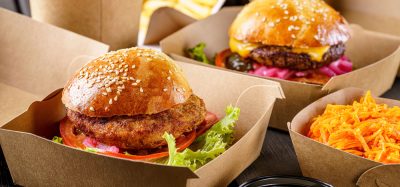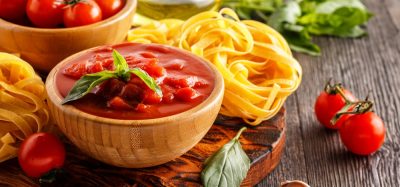Produce incentive programme a useful tool to boost healthy eating, finds study
Posted: 27 May 2020 | Sam Mehmet (New Food) | No comments yet
A national programme that offers financial incentives so that low-income consumers can purchase more fruits and vegetables has shown great success in Oregon, according to a recent Oregon State University study.


The Double Up Food Bucks programme is one of many produce-incentive programmes that pair with the Supplemental Nutrition Assistance Program (SNAP) in the US, commonly referred to as food stamps. For every dollar SNAP recipients spend on eligible foods at participating farmers markets and grocery stores, they get an additional dollar they can put toward more Oregon-grown fruits and vegetables.
In an Oregon State University (OSU) study, which analysed survey data from 1,223 people at 42 farmers markets across Oregon, 91 percent of programme participants surveyed reported buying more fruits and vegetables and nearly 70 percent reported eating less processed food. 81 percent said they had more food available at home and nearly 88 percent said they felt healthier because they were eating more fresh produce.
“I think this evaluation demonstrates that this programme works for low-income consumers, and it’s great for farmers,” said study author Stephanie Grutzmacher, an assistant professor in OSU’s College of Public Health and Human Sciences.
The study also examined people’s perceptions of farmers markets and how those perceptions affected their experience with Double Up Food Bucks. Perceptions reportedly varied significantly between different demographics.
“A lot of people have a really wide range of experiences with farmers markets; some people perceive them to be really homogenous spaces for well-to-do people, and others perceive them to be really community-centred and accessible,” Grutzmacher said. “Both of those things can be true, and everything in between can be true.”
Adults ages 55 and older were more likely to view farmers markets as more expensive than where they normally shopped, which meant they saw less value in the Double Up Food Bucks voucher than people who considered farmers markets affordable.
Altough the study wasn’t able to analyse shoppers by specific ethnicity, non-white shoppers were noted to be more likely to report overall health improvements than white shoppers.
Eating more fresh fruits and vegetables “is one of those ‘should’ things that people carry around a lot,” Grutzmacher said. “I think when this programme makes that produce more accessible to them and gives them more purchasing power, people are able to cross a ‘should’ off their list and they’re able to roll that into their perception that their health is better.”
Related topics
Health & Nutrition, Research & development, The consumer, Trade & Economy









